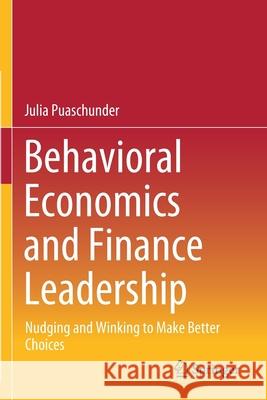Behavioral Economics and Finance Leadership: Nudging and Winking to Make Better Choices » książka
topmenu
Behavioral Economics and Finance Leadership: Nudging and Winking to Make Better Choices
ISBN-13: 9783030543327 / Angielski / Miękka / 2021 / 196 str.
Kategorie:
Kategorie BISAC:
Wydawca:
Springer
Język:
Angielski
ISBN-13:
9783030543327
Rok wydania:
2021
Ilość stron:
196
Waga:
0.28 kg
Wymiary:
23.39 x 15.6 x 1.07
Oprawa:
Miękka
Wolumenów:
01
Dodatkowe informacje:
Wydanie ilustrowane











